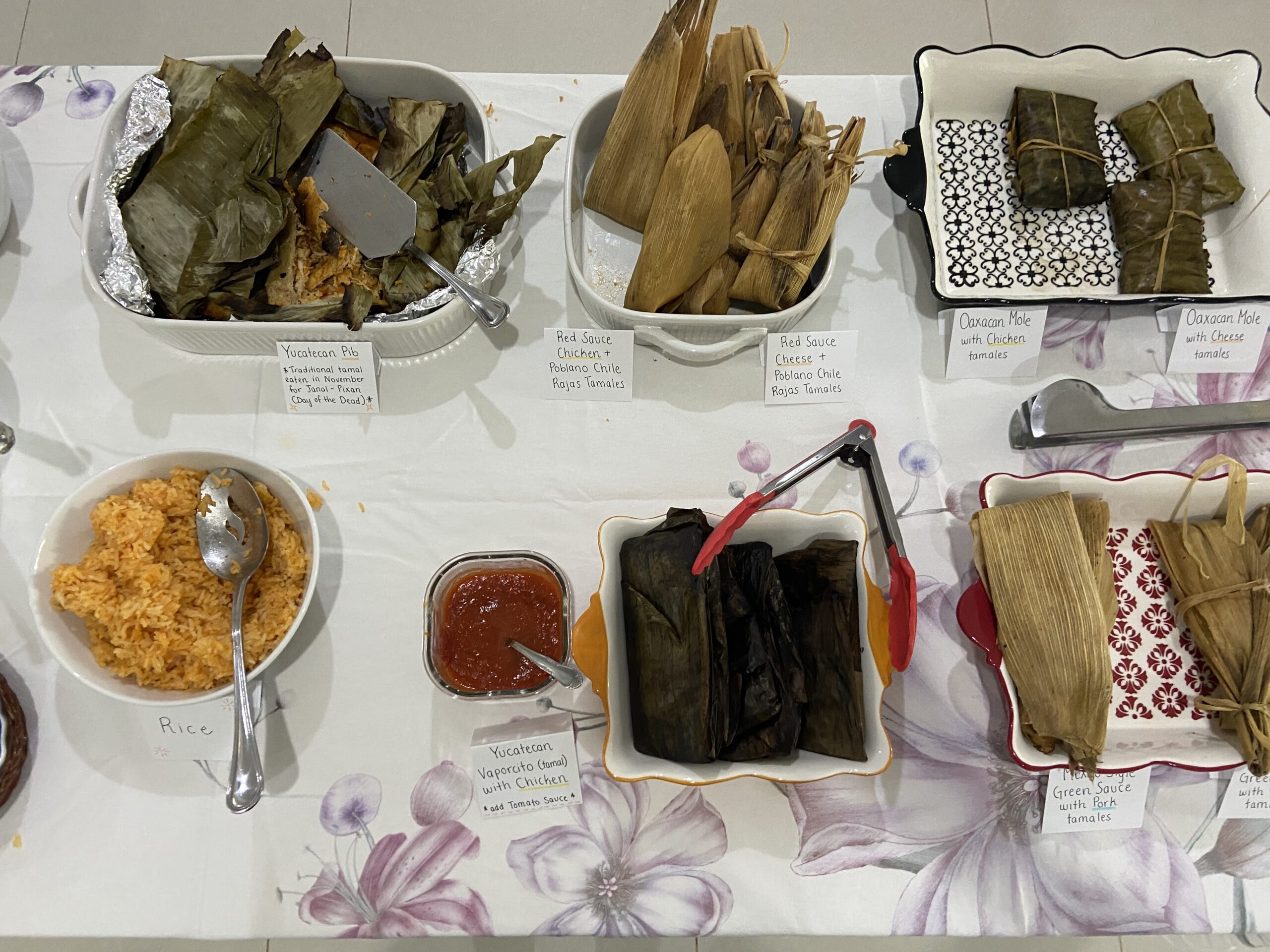
This week, the Institute for Study Abroad (IFSA) held their annual symposium here in Mérida, Yucatán. A couple of IFSA administrators, educators, and staff spent a few days in the city to learn about the abroad experience in Mérida and have meetings, conferences, and seminars. On the second day they were here, they were split into groups to have lunch at one of five host homes. My host home hosted one of the groups and over lunch, we discussed my personal experience in Mérida, advice I would give to prospective students, and my relationship with my host family. The star of the show, however, was the food my host mom made for the event!
IFSA provided host mothers with a suggested menu of the meal and dishes they should make for the event: a variety of tamales (vegetarian and non-vegetarian), beans, rice, fried zucchini and aguas frescas! For a whole week, my host mom gathered her ingredients, prepared her dishes, and sought advice from other host mothers (even though she has been hosting for over ten years)! She made TEN different kinds of tamales (including Oaxacan mole tamales, Mexico City green tamales, Yucatecan pib, etc.) and had pots upon pots of food on her stove. I noticed she looked exhausted and slightly overwhelmed so I asked her why she had to make so many dishes. At first, she told me that she was stressed because IFSA had required vegetarian options for the guests and that some of her tamales weren’t the same without the meat. Then, she paused, and said, “We Oaxaqueños are like this, I know you understand.”
I sat down and realized she was right. The culture in Oaxaca, and something that my father has constantly instilled in me since I can remember, is that when hosting a celebration or reunion, having just enough food is having too little food. In other words, being a good host means making more food than you need for your guests so that you can make sure they are given a full plate of food and so they can also take some home after the event. One should also be ready to gift guests with a food/drink item when they arrive, whether that be mezcal, a Coke, or even cold water. This is expected of guests in happy events, like annual celebrations, sad ones, like funerals, and even random visits. In some Oaxacan communities, it can even be seen as disrespectful to not offer a guest a drink, food, or any other edible item that you value. It is not enough to do the bare minimum as a host — you want to provide your guests with the best time possible!
Some might find this practice to be daunting or exaggerated, but it is actually something that makes hosts and guests feel valued. I believe IFSA continues choosing my host mother as a host for not just students, but many IFSA events, because of her amazing hosting skills, which she further developed when she moved to Oaxaca. She stands out for her detail-orientedness and meticulousness when preparing for events and has made me realize that these are skills that are usually transferred to other aspects of life, like school/work ethics. I have reflected on how I have acquired these skills through being raised with Oaxacan values, and I hope to one day be as great of a host as her!
